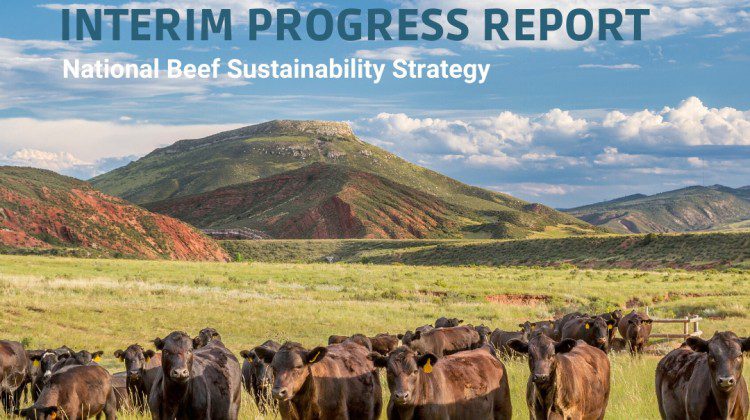NEWS RELEASE
February 6, 2020, Calgary AB. – Today, the Canadian Roundtable for Sustainable Beef (CRSB) released a report outlining progress against its 2016 National Beef Sustainability Strategy, with 86% of the environmental, 75% of the social and 83% of the economic action items completed or in progress.
“We are extremely proud of the work that our multi-stakeholder membership and industry stakeholders have accomplished together over the past three years, which demonstrates the value of collaboration in achieving our continuous improvement goals, says Anne Wasko, Chair of the CRSB and rancher from Eastend SK. These achievements have established Canada as a global leader in beef sustainability, and we look forward to continuing to work together to build trust and transparency about practices that enhance the environmental, social and economic sustainability of beef production in Canada.”
If 100% of the activities were completed at the halfway mark it would indicate that the goals set were not ambitious enough. This Interim Report provides an opportunity to re-focus efforts to ensure all goals and activities are fully completed by 2023, in time for the next full National Beef Sustainability Assessment. Some areas that can use more partnerships and collaboration include: communicating the role of technology and innovation in relation to the environmental, social and economic benefits to the beef industry; research and adoption of packaging that enhances product life and reduces food waste; dialogue regarding how label messaging can enable reductions in food waste; and further awareness of the Code of Practice for the Care and Handling of Beef Cattle.
The CRSB has built a trusted go-to forum on beef sustainability that focuses on three main pillars: Sustainability Benchmarking, a Certification Framework and Sustainability Projects. Multi-stakeholder partnerships have been key to achieving progress against sustainability goals and fostering continuous improvement. These include programs such as the ‘Species Habitat Assessment and Ranching Partnerships’ and others that provide resources and expertise to producers on range, riparian and wildlife assessments, and habitat enhancement project implementation. They support research that increases the understanding of the relationship between beef production and water. Several members are involved in the Canadian Wetlands Roundtable that is committed to the creation of a national wetland inventory.
“Beef raised in Canada is done using the best practices in the world and Ducks Unlimited Canada recognizes the role ranchers play in sustainable agriculture every day, says Emily Lowe, Regional Agrologist – Beef Industry at Ducks Unlimited Canada. We will continue to support and work with the CRSB and others in the Canadian beef industry to emphasize the importance of having cattle on the landscape for the betterment of our wildlife, our water, our grasslands and our overall environment.”
Check out the report’s Executive Summary that summarizes key progress on the sustainability strategy’s action items in environmental, social and economic sustainability. A full report details how CRSB and the commitment of its members and stakeholders to continual improvement is positively impacting the sustainability of Canadian beef.
For more information, contact:
Andrea White
Community Engagement & Marketing Manager, CRSB
whitea@cattle.ca
